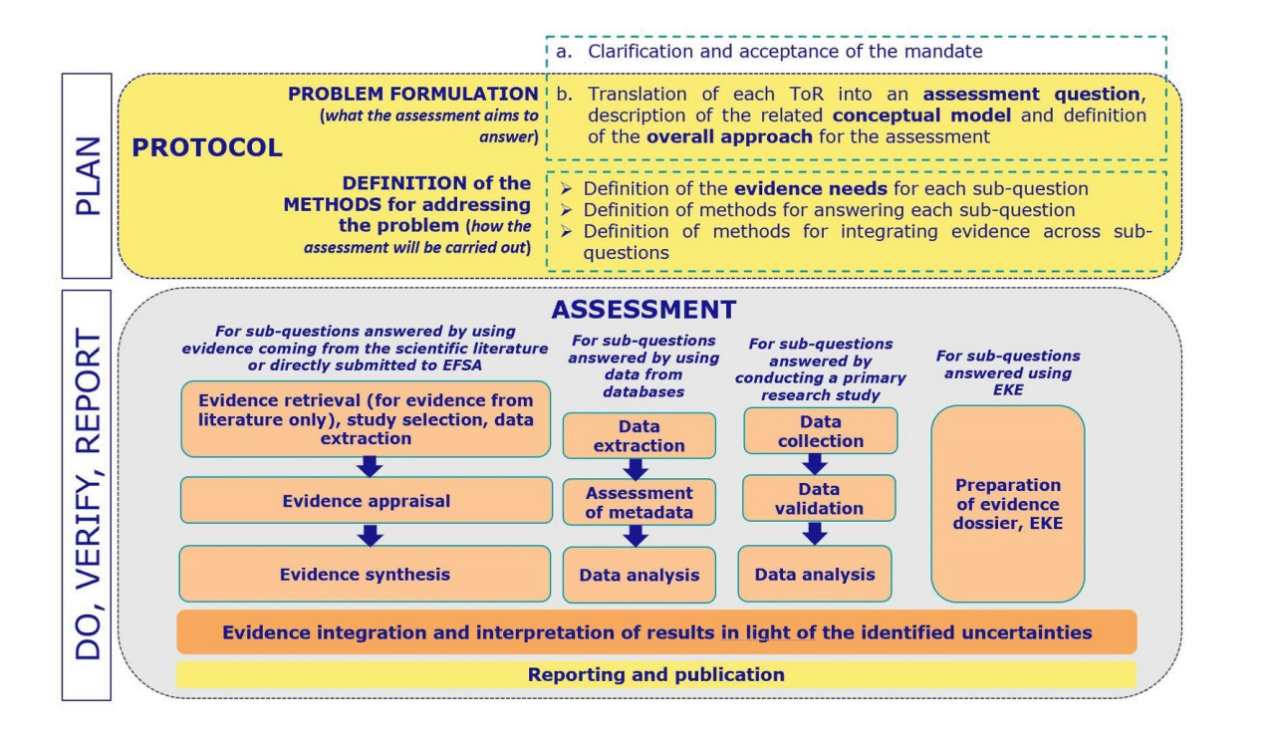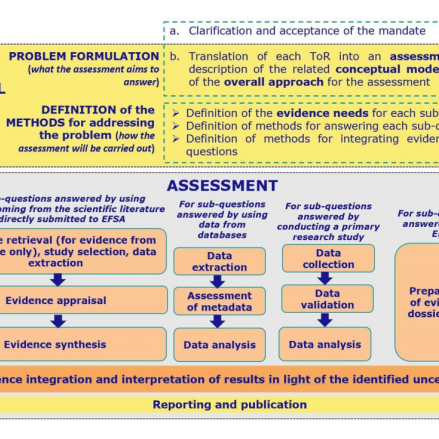Problem Formulation in Food Safety Assessments conducted by the European Food Safety Authority
RSI investigators recently provided advice to the European Food Safety Authority (EFSA) on the problem formulation step in the EFSA scientific assessment approach shown in the figure below. The recommended problem formulation framework is designed to translate the mandate into well-formulated assessment questions and sub-questions, and select the methodological approach to be used in the assessment. Over 700 EFSA scientific assessments conducted over the last two years were examined during the course of developing RSI’s recommendations to EFSA. A novel aspect of the suggested approach was parsing the questions and sub-questions into an APRIO paradigm based on the agent (A), pathway (P), receptor(R), intervention (I) and output (O).

EFSA scientific assessment approach
More RSI News
Bias Assessment in Case-Control and Cohort Studies for Hazard Identification
IARC recently published a volume on quantitative bias modelling: Bias assessment in case–control and cohort studies for hazard identification (IARC Scientific Publication No. 171). We…
Read News ItemRSI Helps Strengthen Food Safety Culture in Vietnam
In mid-October 2025, Vietnamese and Canadian experts convened in Đà Nẵng to exchange approaches for strengthening food safety through risk science. The workshop brought together…
Read News ItemUse of Probabilistic Exposure Models in the Assessment of Dietary Exposure to Chemicals
Risk Sciences International CEO, Greg Paoli and RSI senior experts Emma Hartnett and Paul Price, have co-authored a new peer-reviewed publication highlighting the critical role…
Read News ItemAging and cognitive decline
Working with the College of Physicians and Surgeons of Alberta, Risk Sciences International conducted a wide-ranging review of aging and cognitive decline, with specific focus on aging physicians and fitness to practice. The publication in Aging & Mental Health documents domains of cognition that decline with older age, concerns with relying on physician self-reported competency, challenges with cognitive screening in older physicians, and a general data gap linking cognitive levels and fitness to practice.
Read News Item